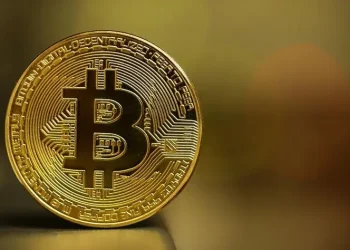TLDR
- Ripple and the US SEC have filed a joint request to settle the XRP lawsuit.
- Judge Analisa Torres must approve the settlement through an indicative ruling.
- Lawyer Bill Morgan stated that the judge would assess whether the deal served the public interest.
- Ripple filed its settlement request on April 23, and the SEC followed on May 8.
- Both parties submitted a Rule 62.1 motion to seek a preliminary court opinion.
The XRP lawsuit has entered a crucial stage as Ripple and the US SEC filed a joint settlement request. Although the settlement marks progress, its implementation depends on Judge Analisa Torres’s indicative ruling. Lawyer Bill Morgan confirmed the uncertainty and outlined the necessary steps before final approval.
XRP Lawsuit Settlement Awaits Judge Torres’ Decision
Ripple filed for settlement on April 23, and the SEC submitted it on May 8. Both parties jointly submitted a Rule 62.1 motion to seek an indicative ruling from Judge Torres. The XRP lawsuit remains limbo until the judge delivers her preliminary decision on the proposed terms.
According to Bill Morgan, the judge’s approval is not automatic but requires an independent public interest assessment. He explained that the court must determine whether the relief sought aligns with legal standards, even with mutual agreement. Thus, the XRP lawsuit awaits a pivotal decision determining if the case proceeds to resolution.
The settlement process that has happened in SEC v Ripple over the last several weeks and will continue over the next few months is apparent from the details of the rule 62.1 motion filed today asking for an indicative ruling from Judge Torres.
1. Settlement agreement signed by…
— bill morgan (@Belisarius2020) May 8, 2025
If Judge Torres issues a positive indicative ruling, Ripple and the SEC will request a limited remand from the Court of Appeals. This remand would allow the case to return temporarily to the district court for settlement enforcement. The XRP lawsuit would then proceed to the final settlement stage, pending remand approval.
Ripple SEC Agreement Awaits Court Decision
Morgan believes widespread public support for Ripple may influence the court’s view of the settlement’s fairness. He referenced the involvement of John Deaton and over 80,000 XRP holders participating in the legal proceedings. This backing could weigh into the judge’s evaluation of public interest.
Additionally, Morgan noted that Ripple and the SEC have agreed to dissolve the injunction and reduce the civil penalty to $50 million. Both sides filed motions to pause the appeal and cross-appeal, seeking procedural clarity. These coordinated efforts aim to simplify the path toward final resolution in the XRP lawsuit.
The judge’s decision will affect whether the parties can proceed with these planned actions. If granted, the next steps will include enforcing the agreed settlement terms and concluding the appellate process. Until then, the XRP lawsuit remains subject to judicial review.
Court Decision Holds Key to XRP Closure
Once the limited remand is granted, Ripple and the SEC will move to implement the court-approved terms of settlement. The XRP lawsuit will require Ripple to pay the agreed fine and formally end the injunction. Following these actions, both parties will file to dismiss their respective appeals.
These steps conclude a lengthy and complex legal battle between Ripple and the SEC. The XRP lawsuit began in December 2020 and has influenced regulatory debates surrounding digital assets. With settlement terms nearly finalized, the court’s decision now holds the key to resolution.
















